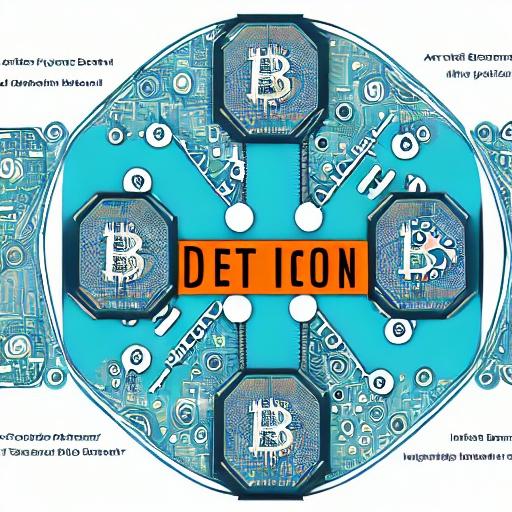As the world teeters on the cusp of a digital revolution, Bitcoin has emerged as its flagbearer. But what exactly is Bitcoin, and how does it work?
Bitcoin, the world’s first decentralized digital currency, was introduced in 2008 by an anonymous person, or group of people, using the pseudonym Satoshi Nakamoto. At its core, Bitcoin is a decentralized system that allows peer-to-peer transactions without the need for intermediaries like banks or governments. This means that transactions can be conducted directly between users, eliminating the need for traditional financial institutions and their associated fees.
The main concept behind Bitcoin is the blockchain, a public ledger that records all transactions made using the digital currency. The blockchain is maintained and updated by a network of computers, known as miners, who compete to solve complex mathematical problems in order to validate and add new transactions to the chain. Once a group of transactions is verified, they are bundled together into a “block” and added to the existing chain of blocks, creating a permanent and unalterable record of all Bitcoin transactions.

One of the key features of Bitcoin is its limited supply. Unlike traditional fiat currencies, such as the US dollar or the euro, Bitcoin has a maximum supply of 21 million coins. This scarcity, coupled with the decentralized nature of the currency, gives Bitcoin its unique value proposition as a store of value and a potential hedge against inflation.
Another aspect that sets Bitcoin apart is its security. Transactions made using Bitcoin are secured through cryptographic algorithms that ensure the integrity and authenticity of each transaction. Each user has a unique cryptographic keypair, consisting of a public key and a private key. The public key is used to receive Bitcoin, while the private key is used to sign and authorize transactions made with the cryptocurrency. This secure and transparent framework makes it difficult for fraudulent transactions or double-spending to occur.
Bitcoin has gained popularity and acceptance over the years, with businesses and individuals adopting it for various purposes. Some see Bitcoin as an investment vehicle, speculating on its potential value appreciation over time. Others use it as a medium of exchange for goods and services, taking advantage of its borderless and low-cost transaction capabilities compared to traditional banking systems.
However, Bitcoin is not without its challenges. Its decentralized nature has sparked debates around regulation and legal frameworks, while its volatility has made some wary of its use as a stable currency. Additionally, the complex nature of the blockchain and mining processes has led to concerns about scalability and energy consumption.
Nonetheless, Bitcoin has paved the way for a broader exploration of cryptocurrencies and blockchain technology. Its success has inspired the creation of numerous alternative cryptocurrencies, known as altcoins, each with its own unique features and use cases.
